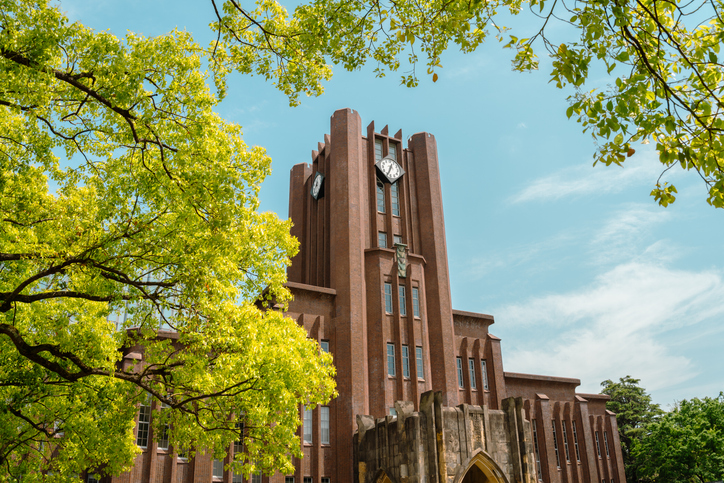On November 2, Bahia Collective curated a screening for Palestine Cinema Days at WHAMMY! Analog Media. (Photo: Bahia Collective)
As the United States government continues to fund Israel’s genocide in Gaza, and Netflix silently wipes 24 Palestinian films from their platform, Bahia Collective — a small group of Los Angeles filmmakers, artists, and curators — is centering Palestinian cinema, raising relief funds, and creating much-needed spaces for community to come together.
On November 2, Bahia Collective held a screening at WHAMMY! Analog Media in Echo Park as part of Palestine Cinema Days, held by AFLAMUNA, “a cultural nonprofit based in Beirut working to harness the power of independent Arab cinema to elevate the most pressing social, political, and cultural movements of our time.” They partnered with Filmlab Palestine to invite individuals, collectives, and spaces around the world to hold a series of screenings of Palestinian Films. This global event took place on Balfour Day, the annual commemoration of the 1917 Balfour Declaration, in which the British Government announced its support for “the establishment in Palestine of a national home for the Jewish people,” thus paving the way for the Israeli occupation entailing violent attacks on the people of Palestine, now in its most recent escalation since the events of October 7.
Bahia Collective was formed in 2020 by a group of artists and friends who met while studying film at CalArts. Hailing from South Africa, Palestine, Cuba, Mexico, India, and Russia, the organizers create spaces to gather around cinema in relation to current politics, food, music, and literature.
The collective is made up of five members — Nehal Vyas, Luis Gutiérrez Arias, and Advik Beni, who are based in Los Angeles, as well as Zaina Bseiso and Ekaterina Selenkina, who are currently away. They’ve just begun a residency with untune in Highland Park, “a creative entity for learning and supporting the teachings of indigenous ecocultural knowledge.” Bahia held its first event for this project, Recipes for the End of Empire, a dinner and screening fundraiser for Palestine and Sudan, at Human Resources on November 23. Included with tickets were zines featuring family recipes as well as photography, writing, and pieces of resistance history.
Creating work centered on political statements is an integral part of Bahia Collective’s practice. Vyas described her experience attending art school in India, “where they elected a prime minister opposing what my country is.” She said her work was shaped by that event and found herself “trying to witness and archive at the same time.”
Beni noted that conversations around resistance had organically weaved themselves into his work and his life since childhood. “If you listen to the aunties back home, politics are part of the gossip and the life. It’s more than a choice; it’s embedded.”

For the May 11 commemoration of Nakba Day, Bahia Collective held a screening, listening session, and fundraiser at Human Resources in Los Angeles. (Photo: Bahia Collective)
Bahia Collective was formed, in part, due to a need for resources to be pooled outside of institutions that censor their work.
“Opposing institutes is easier said than done,” Gutiérrez Arias said. “Filmmakers need resources, and feedback, and it’s isolating when we rely on these places for support.”
At Camden International Film Festival, where she works as a programmer, Bseiso spoke about her experience as a Palestinian filmmaker. “To be in an institution and among a team that allows you to speak your truth unwaveringly is crucial,” she said. “This year, the curatorial process for me, personally, has been very difficult. I have seen the streets that my father played in as a child destroyed into oblivion, erasing the Gaza that I grew up falling in love with and hoping that I would one day see myself.”
Bseiso discussed the power of the image and of repetition, of film’s ability to deal in time, grappling with unspeakable violence and Indigenous resistance across the world, and how vital it is to be part of a community of brave truth-tellers while witnessing genocide.
Beni, a South African filmmaker and organizer with Bahia, withdrew from the German agency Berlinale Talents due to their complacency in the face of the genocide occurring in Palestine, despite the prestige of being represented by the agency. (Berlinale Talents holds a prominent annual film festival that many filmmakers chose to boycott this year due to its complicity in the German government’s ongoing strategy of censoring criticism of Israel.)
Beni explained via Instagram statement, “As someone from the ‘born-free generation’ of South Africa, making work about the violent history of Apartheid and its current ramifications in my country, I have relied on the language of cinema to portray the systems of subjugation and those who resist them. Consequently, I cannot be part of an institute that displays such callous apathy for another ongoing Apartheid.”

The collective Palestine quilt project was displayed at the November 2 screening. (Photo: Isabela Costa)
The Palestine Cinema Days screening was a collaborative effort featuring portraits by photographer and filmmaker Isabela Costa and an expanding quilt project facilitated by Malavika Rao and Tasnim Boufelfel, who have been raising funds for Gaza Mutual Aid Solidarity through their work. “Everyone wanted to contribute,” said Vyas. “We couldn’t have done it without our sphere of friends.
The screening included two documentary films, Mal’oul Celebrates Its Destruction (1984) and Three Promises (2023). The first, directed by Michel Khleifi, was selected from the list curated by Filmlab Palestine as part of their international call for Balfour Day screenings. The film depicts Palestinians’ annual return to their homeland, a pilgrimage that is only permitted once per year as a result of the Israeli occupation beginning in 1948. The film’s portrayal of this choice to return each year, despite the pain it carries, is a profoundly moving tribute to the Palestinian struggle for liberation.
The second film, Three Promises, selected by the members of Bahia Collective, added a more contemporary perspective to the screening. The film consists of a series of home videos recorded by the filmmaker Yousef Srouji’s mother, Suha, during the bombings that began during the Second Intifada in the early 2000s. Throughout her footage, she assures her husband and children that she will stop filming, but the videos show that she continues to document both her family and the destruction around them.
Because Three Promises consisted of home videos, WHAMMY!, which serves as a video store during the day and is full of stacks of VHS tapes and television monitors, created an added layer of intimacy through its analog aesthetic.

Friends and supporters gathered at WHAMMY! for Palestine Cinema Days (Photo: Bahia Collective)
Gutiérrez Arias added that the venue helped bring together “an interconnected community that we knew was there, and sometimes we forget about.” The screening was free, making it accessible to a wider audience, but Bahia was able to collect donations to provide aid and support for displaced people in Gaza.
“It so often feels like there’s nothing we can do, and despair is so constant,” said Vyas. “Even doing a small thing matters, and we’re thinking about how we can continue that.”
As they continue to curate experiences around film, food, and resistance, Bahia Collective provides intimate spaces for cinema here in Los Angeles and across the globe. To connect with their work and attend their upcoming events, follow them on Instagram or visit their website.











